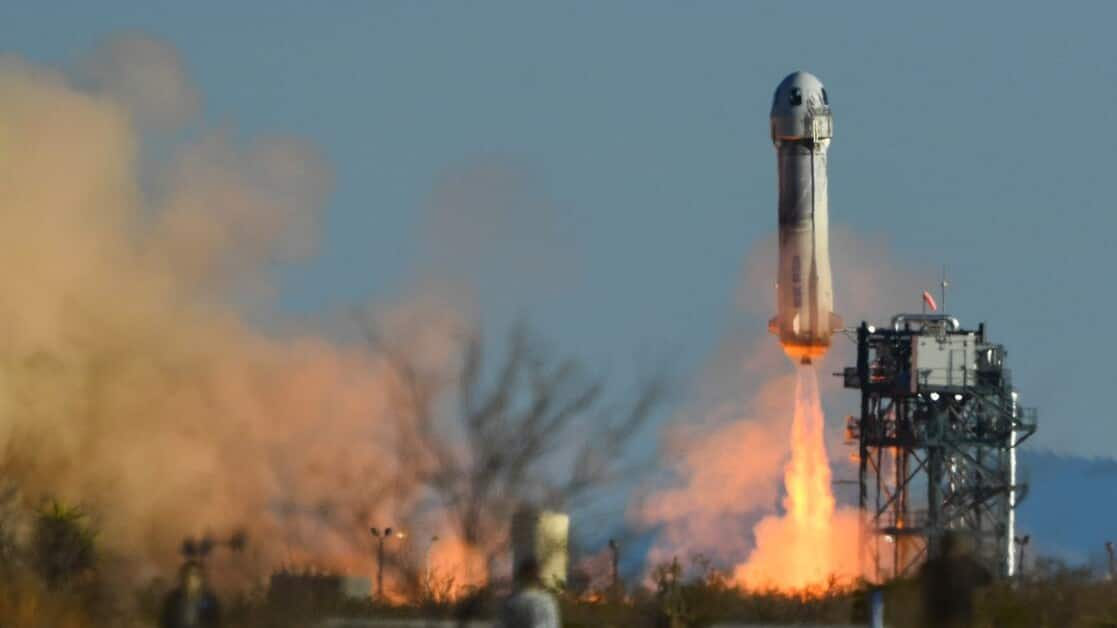
SpaceX-rival Blue Origin to launch new crew capsule tomorrow
What's the story
Blue Origin, the space exploration company founded by Jeff Bezos, is gearing up for the inaugural launch of its latest crew capsule, the RSS Karman Line. The launch is scheduled for Monday at 9:00am ET (6:30pm IST). The company has announced that this new capsule will feature enhanced performance and reusability. It will also include an updated livery and payload accommodations on the booster.
Mission details
NS-27 mission to carry diverse payloads
The upcoming NS-27 mission will transport two LIDAR sensors into space. These sensors are part of Blue Origin's Lunar Permanence program, aimed at developing Moon landers. In addition to these, the flight will carry a total of 12 payloads. These include ultra-wideband proximity operations sensors, a replica of the black monoliths from 2001: A Space Odyssey, and student postcards from its Club for the Future nonprofit initiative.
Launch history
Ambitious launch schedule
If Monday's launch proceeds as planned, it will mark the second New Shepard flight since May. This follows Blue Origin's first crewed launch since 2022 and another successful mission in August. The company is currently working toward becoming a formidable competitor to SpaceX, with CEO Dave Limp emphasizing the need for increased production capabilities in a recent interview with CNBC.
Production targets
Blue Origin's production goals and future plans
Limp stated that by the end of this year, the company aims to produce about an engine a week. He acknowledged that while they might not exactly meet this target, they're striving to keep the production time under 10 days. By the end of 2025, Blue Origin plans to further accelerate its production speed. These ambitious goals underscore Blue Origin's commitment to becoming a leading player in space exploration and technology.
Upcoming launch
New Glenn set for November launch
In November, Blue Origin is set to launch New Glenn, its large reusable booster that recently completed its first second-stage hot fire test. The company claims that this rocket can deliver 45,000kg into low Earth orbit, roughly double the capacity of SpaceX's Falcon 9.